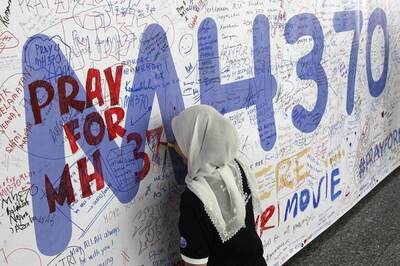
views
New Delhi: If a draft broadcast legislation becomes law, the Government will assume extensive powers to take over control and management of private broadcasting channels in case of war or a natural calamity of national magnitude.
"In the event of war or a natural calamity of national magnitude, the Government may take over the control and management of any of the broadcasting services or any facility connected with it, the draft bill, which is to be considered by the Union Cabinet, states.
In case of breach of any terms and conditions of the licence or permission or registration, the Bill provides for punishments, which includes: *broadcast of a correction or an apology *confiscation of the service provider's equipment *suspension of licence for a specified period *fine up to Rs 50 lakh and revocation of licence.
The Broadcasting Services Regulation Bill, 2006 to regulate private broadcasting also provides for punishment like revocation of licence and fines to those who violate the proposed broadcast guidelines.
The Bill says that the Government may at any time direct the licensing authority (Broadcasting Regulatory Authority of India) to suspend or revoke a broadcasting service's licence, if the service is "considered prejudicial to friendly relations with a foreign country, public order, communal harmony or security of the state."
BRAI will ensure adherence to broadcasting guidelines, and will enjoy wide-ranging powers that will be implemented by various agencies.
PAGE_BREAK
These would include authorised officers, which could be a District Magistrate, Police Commissioner or any other officer notified by the Central or state Government.
To ensure compliance, the authorised officers shall have the powers to "inspect, search and seize equipment" as well as to prosecute, on a written complaint by the Licencing Authority.
Also, the officers would be empowered to prohibit a service provider from transmitting any programme or channel if it is "not in conformity with the prescribed Content Code or if is likely to promote feelings of disharmony hatred or ill-will between religious, racial, regional groups, castes, communities."
Justifying the reasons for enacting such a law, the Ministry said that it has been examining the issue of regulating the operations of broadcasting services, as at present there was no comprehensive law for effective regulation.
BRAI may refuse to register a channel, or cancel its registration, if it is 'of the considered opinion' that the channel's content is likely to threaten the security and integrity of the state and threaten peace and harmony or public order in the whole or a part of the country.
The Ministry noted that concerns had been expressed from time-to-time on undesirable content telecast. Efforts to introduce such a Bill in 1997 failed because a Bill in this regard had lapsed.
A Communication Convergence Bill in 2001 also lapsed. It became necessary to bring in a comprehensive legislation to prevent monopolistic trends in the sensitive sector.
The Ministry said in the absence of a law, the Government could not exercise licensing powers for the sector. It said that the regulatory control and enforcement had subsequently been weak.
The Government denied that the Bill would muzzle the media. Reports about the proposed Bill were "not factually correct", said Information and Broadcasting Minister P R Dasmunsi.
"I have seen news item expressing concern over the proposed Broadcasting Bill in a section of print media. Some of these reports are not factually correct though I would not characterise them as misleading. I reassure the nation, the commitment of the Government for the freedom of the press," he said in a statement.

















Comments
0 comment